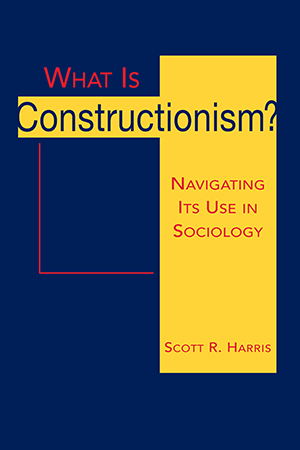
- 2010/169 pages
- Social Problems, Social Constructions
What Is Constructionism? Navigating Its Use in Sociology
Hardcover: $55.00
ISBN: 978-1-58826-727-6
Winner of the SSSI Charles Horton Cooley Award!
Has constructionism become a victim of its own success? Scott Harris argues that, as more scholars adopt the approach, its key concepts are being used in differing and even contradictory ways—thus undercutting the vitality of its application as a research tool. To help clear the waters, he critically examines current debates and delivers a powerful call to launch a renewed constructionism.
Harris traces how constructionism has evolved into two distinct perspectives—interpretative and objective—as he delves into timely topics such as social inequality, marital equality, and family diversity. He also evaluates each perspective's strengths, as well as its unique contributions. Sharpened definitions of the goals and vocabulary of both schools of thought, he demonstrates, give us a more lucid understanding of the pressing social issues of our time.
Has constructionism become a victim of its own success? Scott Harris argues that, as more scholars adopt the approach, its key concepts are being used in differing and even contradictory ways—thus undercutting the vitality of its application as a research tool. To help clear the waters, he critically examines current debates and delivers a powerful call to launch a renewed constructionism.
Harris traces how constructionism has evolved into two distinct perspectives—interpretative and objective—as he delves into timely topics such as social inequality, marital equality, and family diversity. He also evaluates each perspective's strengths, as well as its unique contributions. Sharpened definitions of the goals and vocabulary of both schools of thought, he demonstrates, give us a more lucid understanding of the pressing social issues of our time.





